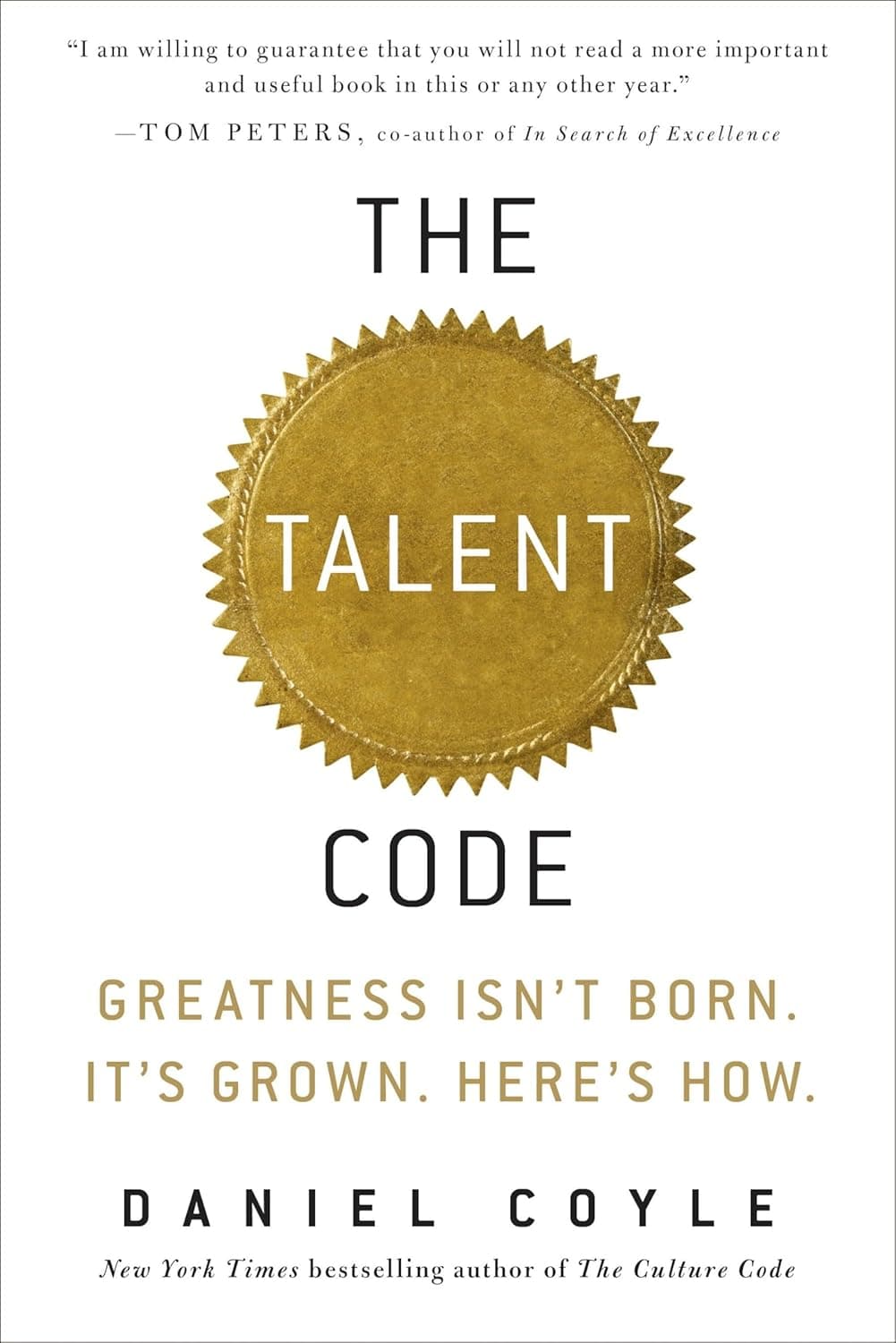
The Talent Code
By: Daniel Coyle
Category: Learning
Finished:
Highlights
Talent is a myth, mastery is all about deep practice.
Struggling right at the edge of your abilities is the best, deepest way to learn. Pushing yourself to that edge constantly is where you learn the fastest and is the defining characteristic of “deliberate practice.” The more deliberate practice you have, the faster and better you learn.
Choose a goal just beyond your present abilities, target the struggle. Thrashing around not knowing what to do doesn’t help, but standing on your tip-toes and reaching does.
Deliberate practice also requires feedback. Quick small adjustments that compound over time, and that you can easily implement into your practice as you’re going.
Rule one for deep practice: chunk it up. Break the big thing you’re trying to master down into it’s composite chunks and master them one by one, then put them back together.
Within these chunks, **slow it down. **Do it perfectly very slowly to get the rhythm down, then speed it up. Don’t try to go full speed right away.
Rule two for deep practice: Repeat. There is nothing more effective for building skills than repeating them, and repeating doing them properly. This is the importance of doing it slowly, too, repetition of mistakes will train the mistakes.
Spending more time is only effective if you’re still at that sweet spot, right on the edge of your abilities. The biological limit seems to be around 3 to 5 hours a day.
**Rule three: Feel the struggle. **Pick a target, reach for it, notice how far you are from the target and where you can reach for, adjust as you go.
Good coaching is about providing information, not criticizing or complimenting, but pointing out little tweaks to help them better hit their goals.
Skills can fall into two categories: requiring extremely deep consistent circuit skills involving doing the exact same thing repeatedly (gymnastics, skating), or broader ivy-like skills that require pulling from many different experiences and rarely doing the same thing over again, but using some fundamental pieces (writing, comedy). The second category is much easier to self educate.
Find ways to practice right at the edge of your abilities.